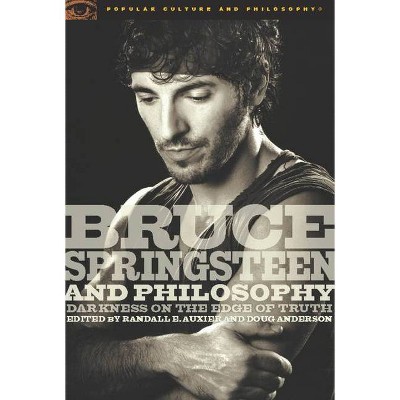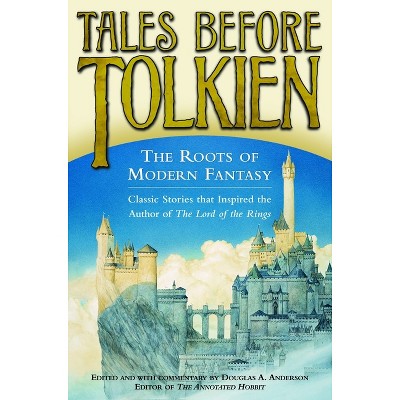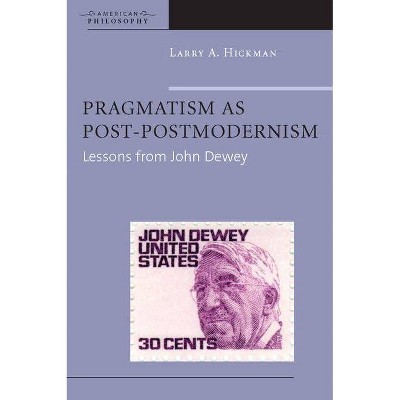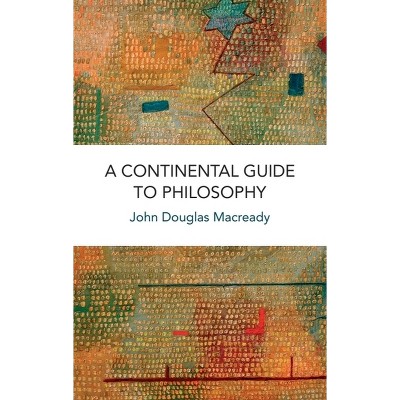Pragmatism and the Philosophy of Sport - by John Kaag & Douglas Anderson & Richard Lally (Hardcover)

$120.00 when purchased online
Target Online store #3991
About this item
Highlights
- The contributors to Pragmatism and the Philosophy of Sport argue that American pragmatism is particularly well suited analyze the experience and development of sport activities.
- About the Author: Douglas Anderson is a professor of philosophy at Southern Illinois University at Carbondale.
- 200 Pages
- Philosophy, Mind & Body
Description
About the Book
The contributors to Pragmatism and the Philosophy of Sport argue that American pragmatism is particularly well suited analyze the experience and development of sport activities. This volume will be a valuable resource in any philosophy of sport class (undergraduate or graduate...Book Synopsis
The contributors to Pragmatism and the Philosophy of Sport argue that American pragmatism is particularly well suited analyze the experience and development of sport activities. This volume will be a valuable resource in any philosophy of sport class (undergraduate or graduate) or in a course on pragmatism; it will also be appropriate for kinesiology students. It will give readers a good sense of the themes in the American philosophical tradition as well as those in the burgeoning field of the philosophy of sport.Review Quotes
Philosophy and sports go well together, and this book opens up the deep connections between pragmatism and physical activity. The authors are athletes who use their experiences as portals into the thought of the classical pragmatists as well as exploring their own lives of inquiry and action.
Pragmatism and the Philosophy of Sport argues quite successfully for what every athlete and pragmatist must know: that through the lived embodied experience of sport, we can find the validity in our own higher truths. The authors, each a practicing athlete/philosopher, cultivate a theoretical landscape of accessible philosophy through the framing of applied sports experiences. For the student of philosophy or the introspective athlete, this text is an honest, enlightening, and pleasure full romp through the 'practical consequences' of thinking about how and why we play these games.
The classical American pragmatists supplied rich resources for philosophical meditation on the nature and meaning of sport, not least of all, because of their insistence on the seamless continuity between human thought and action. Curiously, such philosophizing has been rare, the use of pragmatism for the express purpose of understanding athletic training and competition infrequent. This remarkable collection of essays fills the gap, offering multiple pragmatic perspectives on a variety of topics in the philosophy of sport. In discussions ranging from a Peircean analysis of coaching to a Roycean evaluation of Lebron James's signing with Miami Heat, this book will delight readers with the rich diversity of its contents, nevertheless unified by the constant appeal to pragmatism as a touchstone. This may be the most important book about the philosophy of sport published since Paul Weiss's landmark treatment of the topic in 1971.
This volume is not part of any existing series of books on philosophy and popular culture. For discussion of such series, see D. Stewart's "Holy Toledo, Batman, We're Philosophers!: Popular Culture for Thinkers," Choice 48(8), April 2011. However, this collection of essays shares with these series the intent to explore the philosophical relevance of nonphilosophical activities. Setting this book apart is its ten contributors' approach to the topic from a single philosophical perspective--pragmatism, as found in the writings of such philosophers as William James, C. S. Peirce, John Dewey, and more recently neopragmatist Richard Rorty. The radical empiricism of William James elevates the importance of knowledge by acquaintance over "knowledge about," or what might be called skill knowledge rather than propositional knowledge. For pragmatists, the phenomenological category of lived experience is more important to understanding sport than is mere conceptual knowledge. The self is an embodied self, rather than a transcendental ego or disembodied cogito. Topics featured in the essays include sports feminism, coaching, self-cultivation, movement, and sports injuries. Sport is not just about competition or winning, but about self-development and self-understanding. These essays show how philosophy can enhance one's understanding of these aspects. Summing Up: Recommended.
About the Author
Douglas Anderson is a professor of philosophy at Southern Illinois University at Carbondale. He is the author of a variety of books and articles on the formation of the American pragmatic canon, most recently Conversations on Peirce (Fordham University Press, 2012), co-authored with Carl Hausman. He has also written extensively on the intersection of culture and philosophy in Philosophy Americana (Fordham University, 2006).
John Kaag is an assistant professor of philosophy at the University of Massachusetts Lowell. He is the author of Idealism, Pragmatism and Feminism (Lexington Press, 2011)and a number of articles on the history of the American philosophical tradition. Richard Lally is an associate professor in the sport studies department at Lock Haven University of Pennsylvania. His writing and teaching focus on the topics of leadership, values and ethics-based decision making in sport.Dimensions (Overall): 9.0 Inches (H) x 6.1 Inches (W) x .9 Inches (D)
Weight: 1.0 Pounds
Suggested Age: 22 Years and Up
Number of Pages: 200
Genre: Philosophy
Sub-Genre: Mind & Body
Publisher: Lexington Books
Format: Hardcover
Author: John Kaag & Douglas Anderson & Richard Lally
Language: English
Street Date: November 8, 2012
TCIN: 1005110762
UPC: 9780739178409
Item Number (DPCI): 247-02-5700
Origin: Made in the USA or Imported
Shipping details
Estimated ship dimensions: 0.9 inches length x 6.1 inches width x 9 inches height
Estimated ship weight: 1 pounds
We regret that this item cannot be shipped to PO Boxes.
This item cannot be shipped to the following locations: American Samoa (see also separate entry under AS), Guam (see also separate entry under GU), Northern Mariana Islands, Puerto Rico (see also separate entry under PR), United States Minor Outlying Islands, Virgin Islands, U.S., APO/FPO
Return details
This item can be returned to any Target store or Target.com.
This item must be returned within 90 days of the date it was purchased in store, shipped, delivered by a Shipt shopper, or made ready for pickup.
See the return policy for complete information.











